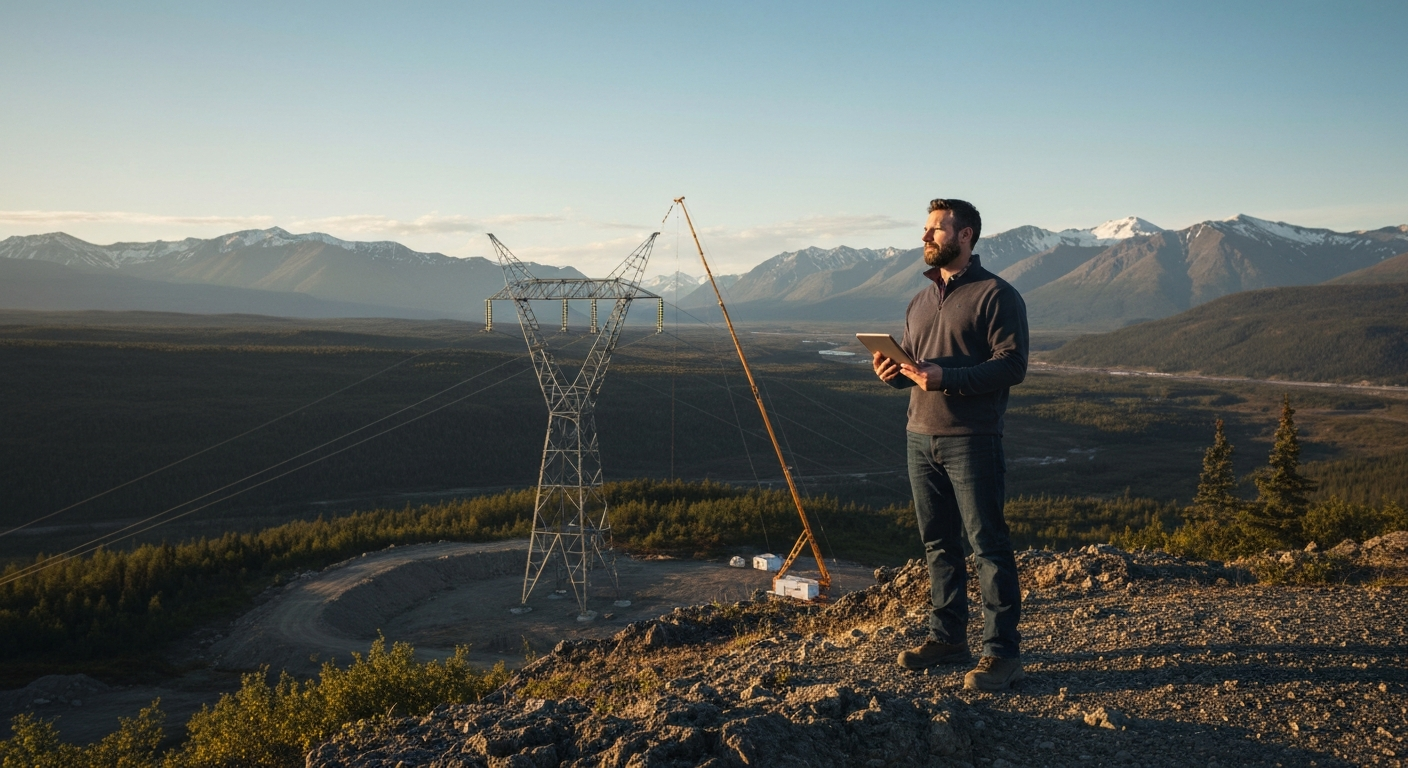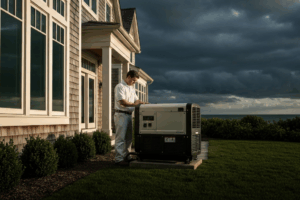
Starting an Electrical Contracting Business in Alaska
Starting an Electrical Contracting Business in Alaska: A 2026 Guide to the Last Frontier’s Boom
Alaska’s economy is hitting a stride not seen in years. Bolstered by massive federal infrastructure investments and significant oil and gas projects, the state’s construction industry is forecasted to add around 1,500 jobs in 2025 alone, according to projections from the Alaska Department of Labor and Workforce Development. For a seasoned journeyman or residential electrician, this isn’t just another work season—it’s the perfect moment to consider starting an electrical contracting business in Alaska. The demand for skilled trades is surging, from the urban centers of the Railbelt to remote communities, creating a powerful incentive for experienced electricians to step up, get licensed, and become their own boss in one of the most unique and rewarding markets in the country.
The Land of Opportunity: Why Now is the Time for Your Electrical Business
The current economic climate in Alaska presents a rare window of opportunity for new electrical contractors. Major investments are driving demand across multiple sectors. The Infrastructure Investment and Jobs Act is funneling significant capital into public projects, while the ongoing Alaskan job market is seeing a boom from large-scale energy developments. This translates directly into contracts for everything from basic wiring to complex industrial installations.
Beyond traditional construction, the state is making a significant push toward energy independence and resilience. Initiatives like Railbelt grid modernization, a key project of the Alaska Energy Authority, and various Alaska renewable energy incentives for contractors are opening up new, lucrative niches. There is a growing demand for electricians skilled in solar, wind, and microgrid systems, particularly for projects in rural and remote areas. This shift toward diversified energy sources means a well-positioned electrical contracting business can secure work that is not only profitable but also critical to the state’s future.
Navigating the Licensing Labyrinth: From Journeyman to Business Owner
Making the leap from employee to owner requires navigating a specific set of state regulations. Simply holding a journeyman electrician or residential electrician certificate isn’t enough to bid on jobs and run a company. In Alaska, your business operations hinge on obtaining two key credentials from the Alaska Division of Corporations, Business and Professional Licensing.
The Key to Contracting: The Alaska Electrical Administrator License
In many states, this role is called a Master Electrician. In Alaska, it’s the Alaska Electrical Administrator license, and it is the single most important credential for an electrical contracting business. An electrical administrator is the person legally responsible for ensuring all electrical work performed by the company complies with safety codes and standards. Per state regulations, an individual holding an electrical administrator license may only be designated as the single qualifying party for one contractor’s license at a time and cannot qualify for multiple registered contractors simultaneously. This supervisory license requires significant, verifiable experience—for example, the Unlimited Commercial Wiring category requires proof of 8,000 hours of work as a journeyman electrician—and passing a state-administered exam. This credential is what separates a skilled tradesperson from a legal contracting entity.
Securing Your Alaska Construction Contractor License
Once you or an employee has an Electrical Administrator license, your business must register as a contractor. This involves applying for an Alaska construction contractor license, which is typically categorized as a “Specialty Contractor” for electrical work. Key requirements for this license include:
- A Surety Bond: You will need to secure a specialty contractor bond Alaska. This is a financial guarantee to protect consumers. For specialty electrical contractors, the required bond amount is $10,000. This is a crucial step in obtaining your license.
- Liability Insurance: The state mandates general liability insurance coverage to protect your business and clients from property damage or injury.
- Workers’ Compensation: If you plan to hire even one employee, you must have workers’ compensation insurance for electricians Alaska.
Setting Up Your Business Foundation for Success
With the licensing pathway clear, the next step is establishing your business as a formal entity. This involves both legal and financial structuring to protect you and position your company for growth.
Choosing Your Business Structure
One of the most critical decisions is forming an LLC in Alaska for contractors. A Limited Liability Company (LLC) is a popular choice because it separates your personal assets from your business debts, offering a layer of protection that a sole proprietorship does not. The process involves filing Articles of Organization with the state, which can be done online for a fee of $250. You’ll also need to get a general Alaska business license for electricians, which is required for all enterprises operating in the state and is renewable every two years.
Mastering the Code and Building Your Niche
Staying compliant and competitive in Alaska’s demanding environment requires a commitment to ongoing education and specialization. While Alaska currently operates on the 2020 National Electrical Code (NEC), the state’s Department of Commerce, Community, and Economic Development is reviewing the 2023 NEC for future adoption. Therefore, it’s crucial to be aware of any current or upcoming National Electrical Code Alaska amendments that address the state’s unique environmental challenges. Keeping up with code changes is non-negotiable, and high-quality online electrical courses are an efficient way to fulfill continuing education requirements and stay sharp. For those looking to elevate their career, exploring advanced credentials can lead to some of the most profitable contractor licenses available.
Furthermore, success in Alaska often comes down to mastering specialized skills. Expertise in cold climate electrical installation—such as selecting the right materials and techniques to withstand extreme temperatures—is highly valued. Likewise, understanding remote area electrical work logistics can give you a significant advantage when bidding on Alaska state electrical projects, many of which are located off the main road system.
Growing Your Alaskan Electrical Business
Once your business is licensed and structured, the focus shifts to securing work and building a reputation for quality. Look for opportunities on state and municipal procurement websites to find contracts. Building relationships with general contractors and participating in industry associations like the Associated General Contractors of Alaska can also lead to valuable partnerships. As your business grows, you may consider expanding your team by helping others on the path of how to become a licensed electrician.
Some electricians may also find it advantageous to explore whether a general contractor license for an electrician could open up even more project management opportunities, allowing them to oversee larger and more complex jobs.
The path to launching an electrical contracting business Alaska is rigorous, but the rewards are substantial. By understanding the licensing requirements, structuring your business correctly, and developing specialized skills for the local market, you can build a thriving company in the Last Frontier. Ready to take the next step in your professional development? Browse our courses to ensure you have the knowledge needed to succeed.
Frequently Asked Questions (FAQs)
- Can I use my out-of-state electrician license in Alaska?
- While Alaska does have some reciprocity for its Electrical Administrator license with a few states, it does not have universal Alaska electrical journeyman reciprocity. You will likely need to meet Alaska’s specific requirements for experience and examination to gain certification. Always verify current agreements with the Department of Commerce, Community, and Economic Development (DCCED), Division of Corporations, Business and Professional Licensing.
- What is the difference between a business license and a contractor license?
- A general Alaska business license is required for any entity conducting business in the state. An Alaska construction contractor license is a separate, professional registration that requires proof of bonding and insurance, allowing you to legally perform and bid on construction work. You need both to operate an electrical contracting business.
- What is the bond amount for an electrical contractor in Alaska?
- An electrical contractor is typically classified as a specialty contractor and requires a surety bond for electrical contractors Alaska in the amount of $10,000, per Alaska Statute 08.18.071. This is a mandatory part of the construction contractor licensing process.
Alaska Continuing Education Courses
Explore our board-approved continuing education courses for Alaska professionals:
View CE RequirementsAlaska 2023 NEC (Ch 1-4), 8 hours Electrical Administrators License Renewal Package
Alaska 2023 NEC (Ch 4-7), 8 hours Electrical Administrators License Renewal Package
Alaska 2023 NEC 16 Hr Electrical License Renewal Package
Disclaimer: The information provided in this educational content has been prepared with care to reflect current regulatory requirements for continuing education. However, licensing rules and regulations can vary by state and are subject to change. While we strive for accuracy, ExpertCE cannot guarantee that all details are complete or up to date at the time of reading. For the most current and authoritative information, always refer directly to your state’s official licensing board or regulatory agency.






